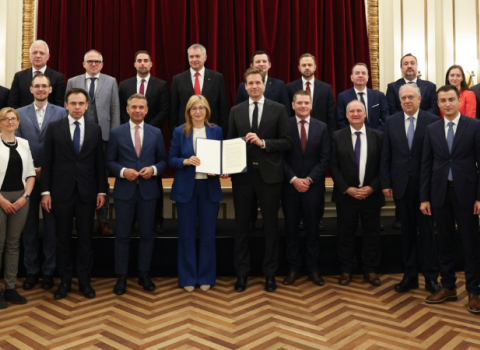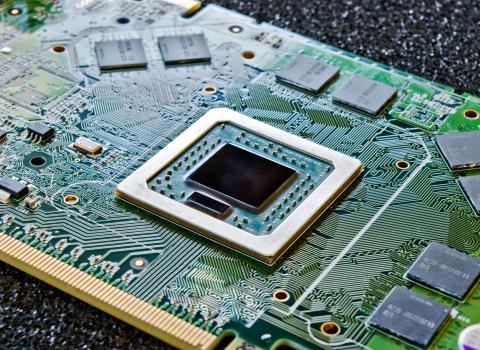MEPs say the EU Chips joint undertaking should put more emphasis on R&D of next generation semiconductors – and they tell the European Commission not to divert Horizon Europe money to new initiatives like the Chips Act
The EU must ensure sufficient and predictable funding for R&D if it is to compete with other parts of the world in the global semiconductor race, MEPs warned the European Commission during a debate on Monday.
MEPs said the EU Chips joint undertaking (JU) should put more emphasis on developing next generation semiconductor technologies, whilst at the same telling the Commission it should not use the Horizon Europe budget to fund new initiatives, such as the Chips Act.
Speaking at the ITRE research and industry committee, Bulgarian MEP and rapporteur on the Chips JU Eva Maydell said the main goal is to, “make sure that we develop the existing semiconductor technology, but also strive to develop the next generation of technologies.”
Earlier this year, the European Commission put forward a proposal for a European Chips act to strengthen research, development and manufacturing capacity in the semiconductor industry.
The legislative proposal includes a “Chips for Europe” initiative through which the Commission will divert €3.3 billion from the Horizon Europe and Digital Europe programmes that was already earmarked for projects related to semiconductors. Of this amount, the Commission plans to transform a joint undertaking for key digital technologies in Horizon Europe into the Chips JU, with a budget of €2.875 billion.
There is a broad consensus that the EU needs to act, but experts say the plan should focus less on incentivising manufacturing and more on investments in R&D for a new generation of high-end chips. A recent report by Brussels-based think tank Bruegel reached a similar conclusion. According to Bruegel, the legislation would end up subsidising semiconductor manufacturing, when the focus should be on strengthening EU’s position in semiconductor R&D.
MEPs have until Thursday to submit amendments Maydell’s report on the Chips JU. “I look forward to crafting a strong position from the Parliament,” Maydell said.
Colette Maloney, head of unit for microelectronics and photonics industry at the Commission’s communications networks directorate general suggested the R&D investment gap between the EU and US in this field is too big to bridge. Compared to the EU’s €3.3 billion for research and development of new semiconductor technologies, the US chips plan will put €11 billion in advanced R&D. “The difference with the US is clear,” said Maloney.
However, the Commission might be able to consider alternative proposals from Parliament and member states if the two were to agree on more money for advanced semiconductors R&D. “The Commission is at their disposal to consider such proposal,” Maloney said.
Parliament and the Council have just ended negotiations on the 2023 EU budget, which includes a very small increase for research. However, the two institutions have very different views on EU R&D expenditure, with member states refusing to cave into pressure from MEPs to allow unspent Horizon money to be put back into the research and innovation programme.
In her report on the Chips JU Maydell calls for a more predictable investment in R&D in the EU budget. “Appropriate levels of funding are essential for the Chips joint undertaking to contribute to the success achievement of the Chips Act and Chips for Europe Initiative,” the report says.
Spanish MEP Lina Gálvez Muñoz said current economic conditions are dire and the Chips JU needs a strong and consistent budget. In addition, Muñoz reiterated Parliament’s request for the EU to think of fresh funding resources for new initiatives, instead of using existing funds in Horizon Europe. “This initiative needs fresh resources to be successful,” she said.
Geographical balance
During the debate, MEPs also called for a more even distribution of semiconductor R&D funding and capabilities across the EU. Maydell said the Chips JU should benefit the EU as a whole and help reduce “existing disparities and gaps in investment that may exist in different member states.”
Latvian MEP Ivars Ijabs echoed this view, saying all member states should be involved in the JU on “an equal basis.”
“Of course, this is not part of cohesion policy - by no means, but at the same time this is a common European thing, and this is what we should emphasise in our Parliament's report,” said Ijabs.





 A unique international forum for public research organisations and companies to connect their external engagement with strategic interests around their R&D system.
A unique international forum for public research organisations and companies to connect their external engagement with strategic interests around their R&D system.